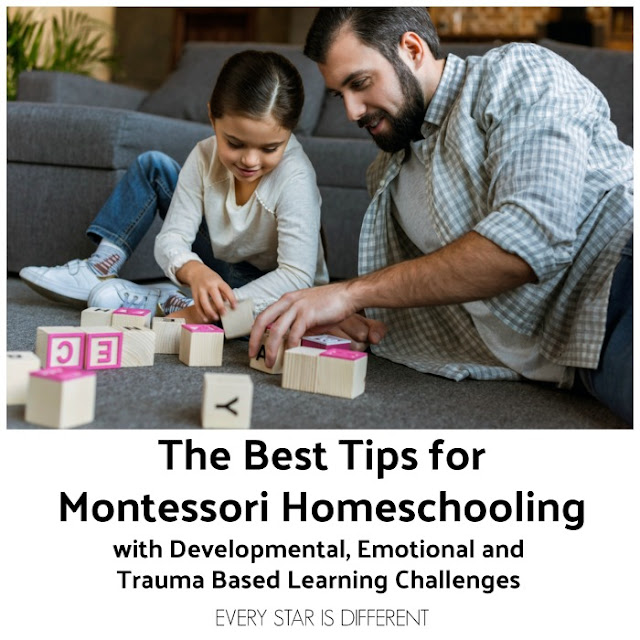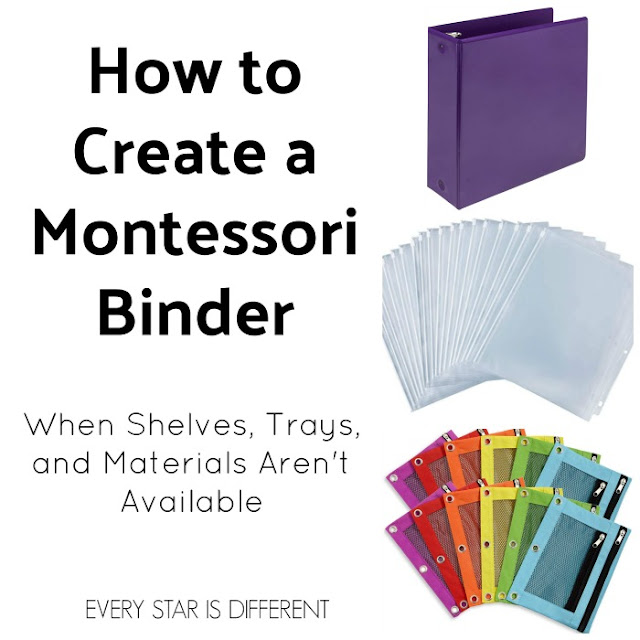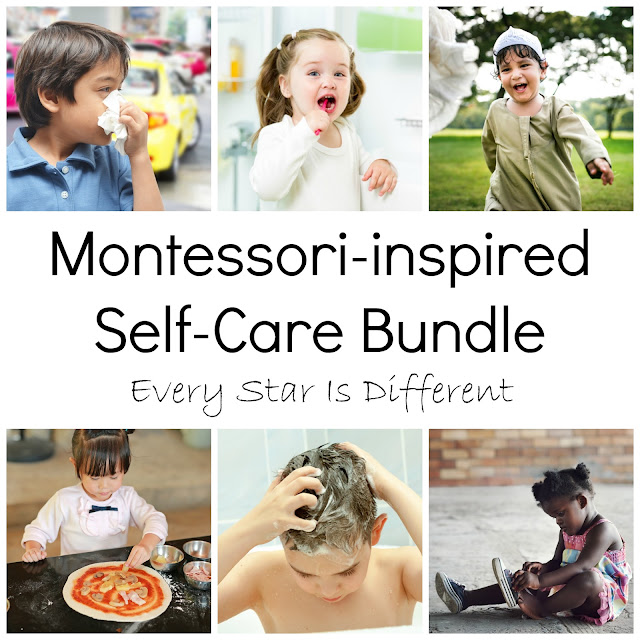The picture perfect philosophy that we read about in books just does not seem to translate to reality.
This can be extremely frustrating and might cause us to become quite discouraged. And chances are this isn’t going to happen just once. It’s part of the journey.
These past couple months of homeschooling have been brutal. The kids show no interest in learning new things.
They’re bored with old materials.
Motivation seems to be MIA.
And the whining, fighting and meltdowns…
This has definitely been one of those times when everything seems to be going wrong with Montessori.
The question is, why? It just doesn’t make sense. And for someone who loves Montessori with all of their heart, like me, this can be devastating.
Last weekend I was at my lowest point. This wasn’t to say I was going to give up, but tears were running down my cheeks, as I tried to figure out what was going on.
And then just like that, after getting some much needed rest I woke up the next morning with a checklist in my head of things to consider and evaluate.
I share this list with you today because it helped me so much. I was able to identify the problem areas and work to fix things. Just a week later things are going fabulous!
10 Things to Consider When Everything Seems to be Going Wrong with Montessori
1. The Montessori Environment
There are times when life becomes chaotic and the environment is not as orderly as it once was.
Montessori Homeschool Classroom Tour
Or you’re human, and just don’t quite get to finish preparing activities for a set of shelves.
For children with disabilities, just a minor change in the environment may set off a chain of regression or refusal to work.
2. Sensory Needs
This might mean that a parent or teacher needs to make sure a child is active for a specified period of time before sitting down to work.
It could mean providing sound blocking headphones or music for one who is sensitive to noise and/or becomes distracted easily while working
Consider the senses and if your child is struggling with any, whether avoiding them or craving them.
If you're looking for specific resources, be sure to check out the posts below!
3. External Stress Factors
A child may be dealing with illness or loss of a loved one.
And remember, not all external stress factors are negative.
All of these situations are external stress factors that influence regular routines and schedules, sleep, anxieties and learning.
4. Health and Wellness
Then there are allergies and other medical issues to consider.
5. Finding the Balance Between Too Easy and Too Hard
It can sometimes be hard to predict which materials and activities a child will be ready for and when, especially if anxieties and other needs are considered.
The Best Tips for Montessori Homeschooling
Yes, there’s a sequence to materials.
Yes there’s the philosophy of following a child.
But...
It’s not always as easy as it appears.
It takes a lot of effort and concentration to observe a child and know where he’s heading. Even then it’s perfectly normal to be wrong.
6. Following the Child
Add obsessions, rigidity, and rituals to the mix when working with a child who is neurodiverse…
Following the child can be hard!
Don’t get discouraged. It takes time, patience and energy.
Even though you may be coming up short now, it’s easily remedied. Let your child take the lead!
7. Missing One of Maria Montessori’s Teachings
A new lesson can be learned every time you read one of Maria Montessori’s books.
It may be that a new phrase stands out and it’s exactly what you need to hear at the time.
Don’t ever think you know everything. Take the time to study and improve yourself.
8. Our Need for Control
This goes beyond following the child, as one can follow a child and still retain control of everything a child does.
It may be you’re just protective, but this can discourage independence which is so important.
9. Comparing children
Suzie is writing.
Tommy is reading.
James is doing math.
And your son or daughter?
Every child is different.
Each child comes with their own set of unique strengths and weaknesses.
The minute you start comparing, you start down a path that is less and less Montessori. It can really effect how you teach and how a child learns.
10. Development
As the brain changes one can often notice regression in skills that were once there, followed by a burst of new energy and knowledge.
You may be doing everything right.
The brain may be just hard at work on new developmental tasks and can’t handle additional information at the moment.
Wait a couple months and try again. You may be pleasantly surprised by what you see.
As I went through this list and evaluated our situation, I realized there were a combination of factors to consider.
November and December are the hardest months of the year for our kiddos with development and external stress factors.
These difficulties then influence sensory regulation.
Add sickness to the mix and we already had a recipe for disaster.
But that wasn't all!
Our environment is still not perfect by any means and that wears on all of us.
It's coming, but it's definitely not perfect.
Sunshine has been growing leaps and bounds when she is stable to the point where I can't keep track of where she's at, what's hard, what's easy, and what she likes.
When life is chaotic I feel the need to organize, clean, and gain control.
This doesn't always go well, and I tend to stop paying attention to my children's needs for independence.
During these moments it's also hard for me to focus on following the child.
The icing on the cake was when I decided to relax by spending some time on facebook.
I saw so many examples of other people's children excelling in areas where mine struggle so much. And that was it.
Everything seemed to be going wrong with Montessori.
The key is to remember, it's not Montessori that's going wrong.
Montessori will always work if we let it.
It's just us that may not be our best all the time.
And that's okay.
Montessori is designed to grow with the child, parent, and teacher through every obstacle and challenge.
If we just read, study, and take the time to evaluate we can get things back on track.
Don't ever give up!
For those who would like more Montessori resources, be sure to subscribe to our free newsletter by clicking the link below.
If you enjoyed this post, you may also enjoy the posts below:














Thank you for your honesty! I love your blog, as an inexperienced Montessori homeschooling mom. It can be a totally different world with special needs kiddos, and hard for me to know the quickest way to continue on the right path for my situation. Thank you very much for this share, and your printable resources!
ReplyDeleteWould you consider doing a couple posts about how to normalize younger special needs children, and when you start with them? More about tips and tricks to working with special needs and Montessori homeschooling? Dealing with rigidity? It can be difficult to find information like this, and I don't have an experienced Montessori mentor.....Thank you for your consideration!
We have a very mixed age Montessori classroom at home, with a part-time 4yo (he does some play-school away from home & is beginning school at home 3 hrs/day 2x week) & 11yo that was pulled from school only a year ago. One is special needs and one has a learning difference & working through very low self-esteem associated with school career. We have an O.T. and tutoring therapist, but it is a struggle to find the resources as a homeschooling Montessori mom to specials that we need to answer all the questions, as I am sure you know!
Thank you for all your hard work & information and resources on your blog! Posting anonymously to protect the identity of our kiddos.